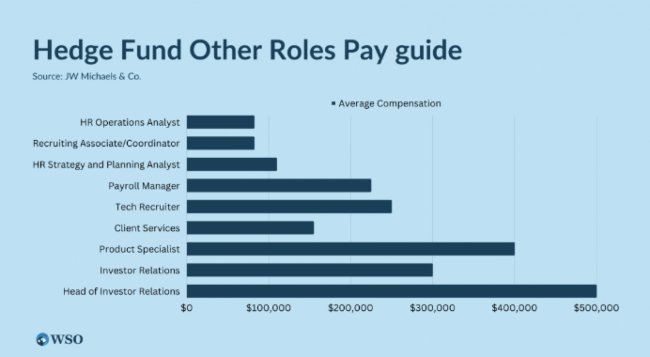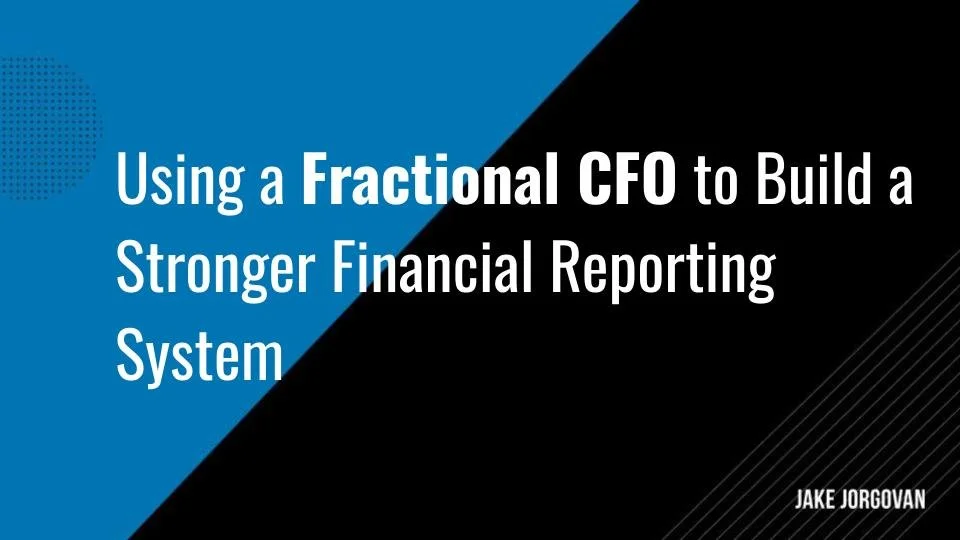6 Key Factors When Determining How Much It Costs to Start A Hedge Fund
Starting a hedge fund requires significant financial planning, and it doesn’t come cheap.
Legal fees for setting up the fund's structure can range from $15,000 to $50,000, depending on complexity. Additionally, compliance costs can consume up to 10-15% of a hedge fund’s operational budget.
Understanding the costs involved is crucial. This article breaks down the 6 key factors that determine how much it costs to start a hedge fund.
We’ll cover seed capital, regulatory fees, and operational costs. We’ll also dive into technology, marketing, and staffing expenses. By the end, you'll have a clear picture of the financial commitment required.
All this will help you tackle the complexities of hedge fund startup costs with confidence.
Let’s dive in.
What Are Hedge Fund Startup Costs?
The cost of starting a hedge fund can vary from $1 million to $2 million, as shown in the image below:
Whatever path you take, starting a hedge fund requires significant financial resources for initial setup and ongoing operations. Here's a breakdown of the key costs involved:
Seed capital: To attract significant investments, having at least $5 million in assets under management is advisable, with $20 million being a more effective target to gain serious investor interest. Seed capital often comes from personal savings and initial investments from friends, family, or accredited investors.
Legal costs: Legal expenses for starting a hedge fund typically range from $5,000 to $15,000 for basic legal services but can go up to $150,000 depending on fund size and complexity.
Administrative costs: These include the costs for setting up a legal entity, filing for SEC registration, and hiring accountants or bookkeepers. These expenses can range from $2,000 to $50,000+, with ongoing administration potentially costing between $24,000 to $100,000 annually.
Compliance costs: Compliance officers, necessary to ensure adherence to regulatory standards, can cost at least $50,000 per year. Third-party audit and tax services can add another $2,000+ annually.
Technology costs: Technology costs vary widely depending on your hedge fund size and complexity. Investing in trading software, cyber security, data storage, and other necessary technology can cost at least $10,000 - $100,000 on the low end. Mid-sized to larger hedge funds may spend upwards of $500,000 to fit their needs.
Marketing costs: Effective marketing is crucial for attracting investors and raising sufficient capital. Marketing expenses can range from $5,000+ per month, depending on the strategies and channels used.
The total cost to start a hedge fund can vary widely but generally falls between $50,000 and $300,000 for initial setup, with annual operational costs ranging from $75,000 to $150,000.
That’s why establishing a solid network and a viable investment strategy is crucial for attracting investors and ensuring long-term success.
How to Approach and Manage Hedge Fund Costs
Now that you’ve seen how much it costs to start a hedge fund, here’s how to manage those costs:
1) Seed Capital
“Assets under management” refers to the total of all the investments a hedge fund manages on behalf of its clients, as depicted in the graphic below.
Securing sufficient initial assets under management (AUM) is crucial for launching a successful hedge fund. The average break-even point for hedge funds is approximately $86 million in AUM, with a third achieving break-even at $50 million or less.
Having adequate AUM supports operational costs and enhances your credibility with potential investors. Here’s how to approach your initial AUM:
Engage anchor investors: Identify and secure commitments from anchor investors who can provide a substantial portion of your initial capital. These investors also serve as a stamp of approval for future investors.
Create a strong pitch deck: Develop a compelling pitch deck highlighting your unique value proposition, strategy, and track record. Ensure it is professionally designed and tailored to your target audience.
Leverage personal and professional networks: Tap into your existing networks to find potential investors. Personal connections can lead to initial commitments and valuable introductions.
Offer incentives: Provide early investors with incentives such as reduced fund management fees or equity participation. These incentives can attract investors willing to commit significant capital upfront.
Showcase a robust track record: If possible, present a solid track record of past performance. Historical success can instill confidence in prospective investors.
Attend industry conferences: Participate in hedge fund and investment conferences to network with potential investors. These events provide opportunities to present your fund to a targeted audience.
2) Regulatory and Compliance Costs
Hedge funds, as financial bodies, are subject to a number of regulatory requirements, like those shown below:
Navigating regulatory and compliance costs is essential when starting a hedge fund. Ignoring these expenses can lead to significant legal challenges that could derail your fund before it gets off the ground.
You need to research the specific regulations in your jurisdiction, including registration with relevant authorities such as the SEC in the United States or the FCA in the United Kingdom. Hiring expert legal counsel is also a wise move — experienced legal advisors who specialize in hedge funds can give you guidance on compliance and help you navigate complex legal landscapes.
Implementing robust compliance systems is another key step. This includes establishing AML (Anti-Money Laundering) procedures, KYC (Know Your Customer) protocols, and conducting regular audits to make sure you’re compliant. Budgeting for filing fees is also important, as both initial and ongoing regulatory filings come with costs that should be planned for in advance.
Additionally, staying updated on regulatory changes is necessary since the legal environment can shift rapidly. Regularly reviewing and updating your compliance procedures helps you remain in line with new requirements. Finally, providing continuous training and education for your team keeps them well-versed in compliance obligations and minimizes the risk of accidental non-compliance.
Insider Tip:
Set up a compliance calendar with reminders for all regulatory deadlines. This proactive approach helps you manage deadlines efficiently and meet all legal obligations without last-minute scrambles. It’s a small step that can prevent costly oversights and keep your fund in good standing with regulatory bodies.
3) Legal and Organizational Expenses
Establishing a strong legal and organizational foundation is critical for the long-term success of your hedge fund. Proper legal structures and organizational setups prevent potential pitfalls and ensure smooth operations. Here’s how you can approach this aspect:
Choose the right legal structure: Select a legal structure that suits your fund’s strategy and jurisdiction. Common structures include limited partnerships (LP) or limited liability companies (LLC). Each has distinct advantages and tax implications. For instance, LPs are prevalent in the U.S., especially for hedge funds, due to their pass-through taxation benefits.
Draft comprehensive fund documents: Work with legal experts to create clear and detailed fund documents, including offering memoranda, subscription agreements, and partnership agreements. Precise documentation protects you and your investors.
Establish corporate governance: Implement strong corporate governance practices. Establish an independent board of directors or advisors to oversee fund operations and ensure accountability.
Engage experienced service providers: Partner with reputable service providers such as fund administrators, auditors, and custodians. They provide essential services and enhance your fund’s credibility.
Develop internal policies and procedures: Create internal policies for risk management, compliance, and operations. Document these procedures to maintain consistency and transparency.
Secure intellectual property: Protect your proprietary trading strategies and algorithms. Register trademarks and patents as necessary to safeguard your intellectual assets.
Insider Tip:
We suggest conducting regular legal audits to ensure your fund’s structure and documents comply with evolving regulations. Proactive legal reviews can identify potential issues before they escalate and save you time and resources in the long run. This practice strengthens your fund’s foundation and enhances investor confidence.
4) Operational and Technology Infrastructure
Operational and technological infrastructure is the backbone of any successful hedge fund, which is why hedge funds typically allocate about 5-10% of their operational budgets to technology and data costs. Efficient systems streamline operations and provide the tools for robust trading and risk management. Here’s how to build this infrastructure:
Investing in the right trading platforms is essential for seamless execution, real-time data access, and advanced analytics. The best platforms integrate easily with other tools and align with your trading strategies. Alongside this, you’ll need to implement comprehensive risk management systems. Robust software solutions help monitor and mitigate risks through stress testing, scenario analysis, and real-time risk reporting.
Cybersecurity is another priority. Protecting your data and systems requires multi-factor authentication, encryption, and regular security audits to prevent breaches. Additionally, using portfolio management tools like Hedgeguard (shown below) improves decision-making with detailed performance analytics, attribution analysis, and reporting capabilities.
A robust IT infrastructure is also necessary to support high availability and scalability. Reliable servers, strong network connectivity, and backup systems ensure uninterrupted operations. Finally, leveraging cloud-based solutions provides flexibility and cost efficiency. Cloud platforms offer scalable storage, computing power, and collaboration tools that streamline hedge fund operations.
Insider Tip:
We advise conducting quarterly reviews of your technological stack to ensure it remains aligned with your fund’s evolving needs. Regular assessments help identify areas for improvement and keep your operations at peak efficiency. Staying ahead in technology boosts performance and provides a competitive edge in the market.
5) Marketing and Fundraising Budget
Effective marketing and fundraising are critical to the success of your hedge fund. Attracting the right investors and building a strong brand presence sets the foundation for sustained growth. Here’s how to do it:
Develop a compelling value proposition: Clearly articulate what sets your fund apart. Highlight your unique investment strategy, track record, and team's expertise.
Create professional marketing materials: Invest in high-quality brochures, presentations, and websites. Make sure these materials are polished, informative, and reflect the sophistication of your fund.
Make use of industry networks: Network extensively within the financial industry. With North America accounting for 67% of global hedge fund investors in the third quarter of 2021, attending conferences, joining professional associations, and engaging with industry influencers in this region can significantly increase your visibility.
Use digital marketing: Employ digital marketing strategies to reach a broader audience. This includes maintaining an active online presence through social media, blogs, and newsletters.
Engage with prospective investors: Conduct one-on-one meetings, webinars, and seminars to connect with potential investors. Personalized interactions help build trust and credibility.
Track and analyze fundraising efforts: Implement a CRM system to manage and analyze your investor outreach efforts. This helps identify successful strategies and areas for improvement.
Insider Tip:
Develop a viable strategy for thought leadership. Publish insightful articles, white papers, and market analyses regularly. This will position your fund as an authority in the industry and attract sophisticated investors. Consistently sharing valuable insights will keep you top of mind and improve your fund's reputation.
6) Employee Compensation and Benefits
It’s no secret that hedge funds pay well, and compensating your employees will be a major factor in your annual costs. The image below shows some typical pay rates for different hedge fund roles:
Securing and retaining top talent is fundamental to the success of your hedge fund. A strong team drives performance, innovation, and investor confidence. Here’s how to effectively manage employee compensation and benefits:
Offering competitive salaries is essential if you want to attract high-caliber professionals during the hiring process. Benchmarking compensation packages against industry standards means that your fund remains appealing to top talent.
In addition to salaries, incorporating performance bonuses can do more to align employee interests with fund goals. Structuring these bonuses based on both individual and fund performance incentivizes high achievement and retention. A report found that only 20% of hedge fund professionals were guaranteed a bonus — which shows that substantial bonuses are reserved for top performers.
Providing equity participation is another effective strategy. Offering employees equity stakes in the fund fosters a sense of ownership and long-term commitment. Alongside compensation, designing a comprehensive benefits package that includes health insurance, retirement plans, and wellness programs enhances job satisfaction and loyalty.
Investing in professional development is also crucial. Continuous learning opportunities, such as training and development programs, help employees grow and stay engaged. Finally, creating a positive work environment by cultivating a supportive and collaborative culture improves morale and boosts productivity.
Insider Tip:
We recommend implementing a clear career progression path for your team. Regularly review and adjust career development plans based on performance and market conditions. Transparent growth opportunities motivate employees and help retain top talent in a competitive market.
Key Considerations and Common Mistakes When Calculating Hedge Fund Costs
Launching a hedge fund involves significant financial planning, yet many fund managers underestimate key cost factors. Here are some of the most common mistakes and how to avoid them:
1. Underestimating Regulatory and Compliance Costs
Many hedge funds fail to account for ongoing compliance costs beyond initial registration fees. Regular audits, legal counsel, and regulatory filings can quickly add up.
How to avoid it: Budget for annual compliance expenses, including SEC filings, investor reporting, and external audits. Consulting with a legal expert can help clear up long-term obligations.
2. Overlooking Operational Infrastructure Expenses
Fund managers often focus on investment capital but neglect the additional costs of technology, data feeds, and cybersecurity. Trading platforms, cloud infrastructure, and security measures are essential, but they don’t come cheap.
How to avoid it: Plan for IT and infrastructure expenses from the outset. Invest in scalable solutions to accommodate future growth while maintaining security and efficiency.
3. Misjudging Talent Acquisition and Compensation
Hiring top-tier investment professionals is expensive, and misjudging salary expectations or bonus structures can lead to retention issues.
How to avoid it: Research industry-standard compensation packages and structure competitive salaries, bonuses, and equity incentives to attract and retain skilled professionals.
4. Failing to Accurately Forecast Fundraising and Marketing Costs
Many hedge funds assume investors will come naturally, which can lead to insufficient budgets for investor relations and marketing efforts.
How to avoid it: Allocate a portion of the budget to marketing, professional branding, and networking. Working with placement agents can speed up your capital-raising efforts.
5. Ignoring Hidden or Unexpected Costs
Legal disputes, market downturns, or investor redemptions can create unforeseen financial challenges. Many hedge funds fail to establish contingency plans.
How to avoid it: Maintain a financial buffer for unexpected expenses. Conduct regular cost assessments to adjust budgeting as needed.
By addressing these common mistakes early, hedge funds can establish a more sustainable financial foundation and avoid costly setbacks.
Start Your Hedge Fund with the Right Factors in Mind
Understanding the costs of starting a hedge fund is crucial. And each factor plays a significant role in your financial planning.
Accurate budgeting can be the difference between success and failure. Are you prepared to meet these financial challenges?
After reading this 6-step guide, your answer should be ‘yes.’
FAQ — Hedge Fund Startup Costs
How much does it cost to start a hedge fund?
The cost of starting a hedge fund varies widely, typically ranging from $50,000 to $500,000, depending on factors like legal fee structures, compliance, technology, and initial capital requirements. Larger funds with sophisticated hedge fund strategies and institutional investors may require significantly higher initial costs.
Is it hard to start a hedge fund?
Starting a hedge fund is challenging due to regulatory considerations, capital-raising difficulties, and operational complexities. Success depends on securing sufficient assets under management (AUM), navigating compliance requirements, and building a strong investment track record.
What are some common hedge fund costs?
Common hedge fund costs include legal and compliance fees, trading platform expenses, employee compensation, office space, marketing, and investor relations. Ongoing costs like audit fees, fund administration, and cybersecurity can also add up.
How do you determine the cost of starting a hedge fund?
To determine startup costs, start by working out expenses related to legal setup, regulatory compliance, operational infrastructure, and staffing. Factor in marketing and fundraising costs, and create a budget that includes both initial and ongoing expenses.




















